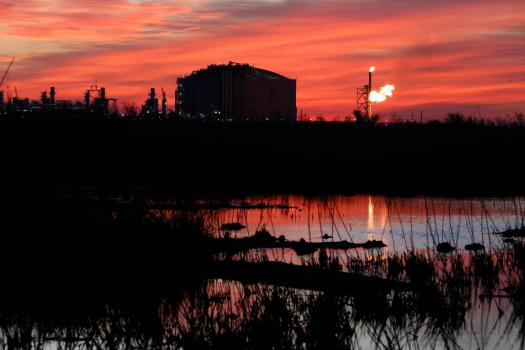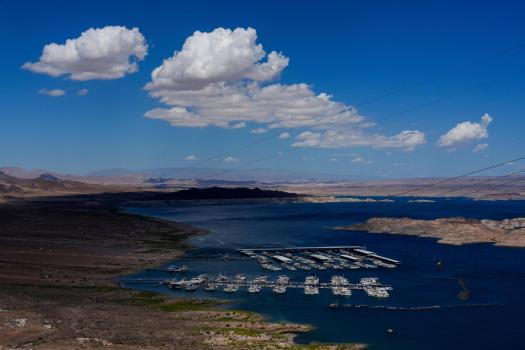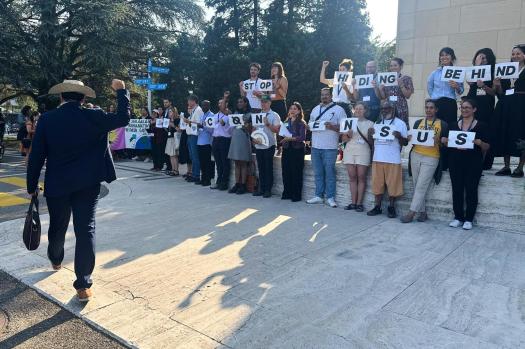By Jennifer Mcdermott and Jack Brook
Despite being a fossil fuel that releases greenhouse gases that warm the globe, Louisiana is the latest state to redefine natural gas as green energy through a new law signed this week by the Republican governor.
Related Articles
-
Native leaders blast construction of Florida s Alligator Alcatraz on land they call sacred
-
How carbon capture works and the debate about whether it s a future climate solution
-
Proposed Seminole toll road would cut through her dining room and his nursery
-
Tickled Pink: Flamingos on Merritt Island show birds are giving Florida a second chance
-
GOP plan to sell more than 2 million acres of federal lands is found to violate Senate rules
Three further states with Republican-led administrations Similar laws have been passed in Tennessee, Ohio, and Indiana. There have been attempts to phase out natural gas in a few states with Democratic majorities.Although some of these regulations have been successfully contested in court, localities in California, including Berkeley and San Francisco, as well as New York, have taken steps to prohibit natural gas hookups in new construction.
A number of executive orders made by President Donald Trump support the burning of coal, oil, and gas to generate energy, all of which warm the globe. Greenpeace and the Austrian government are suing the European Union for its prior designation of nuclear and natural gas as sustainable.
The new law sets the tone for the future and will help the state pursue energy independence and domination, according to Louisiana Governor Jeff Landry, a strong supporter of the state’s petrochemical industry.
Environmental organizations claim that these new regulations are a part of a larger campaign by organizations supported by the petrochemical sector to reframe fossil fuels as climate-friendly and thwart attempts to switch to renewable energy sources like wind and solar for power networks. Greenpeace USA’s research director, Tim Donaghy, called it “pure Orwellian greenwashing.”
Around the world, energy from clean natural sources—such as geothermal, hydro, wind, and solar—is referred to as “green energy.” A law in Louisiana may allow natural gas to be supported with money intended for state clean energy projects.
For the past ten or so years, natural gas has surpassed coal as the primary source of energy generation in the United States. Burning coal produces more than twice as much carbon dioxide as burning natural gas, which warms the earth.
Although switching from coal to natural gas reduces carbon dioxide emissions, methane emissions may rise. Methane, the main component of natural gas, is a very strong greenhouse gas that traps heat more effectively than carbon dioxide and is accountable for almost 30% of the current global warming.
According to Rob Jackson, a climate scientist at Stanford University, everything else is better for the environment than gas, with the exception of coal. He noted that the construction of new gas plants locks in pollution from fossil fuels for decades.
According to Louisiana law, natural gas and nuclear power should be given priority by state agencies and utility regulators since they will increase the affordability and dependability of the state’s electrical supply.
Republican Representative Jacob Landry, the law’s author, owns a consulting business for the oil and gas sector.
“I don’t think it’s anything crippling to solar or wind, but you have to realize that the sun doesn’t shine every day and the wind doesn’t blow all the time,” Landry said. According to the legislation, we must give priority to the things that keep the grid powered, he continued.
“I used a model bill by the American Legislative Exchange Council as a template,” Landry told The Associated Press. ALEC is a conservative think tank with ties to the Koch family, who are billionaires in the oil and gas sector.
According to documents obtained by the watchdog group Energy and Policy Institute and initially reported by the Washington Post, ALEC contributed to the development of Ohio’s 2023 law that legally redefined natural gas as a form of green energy. An advocacy group headed by Republican megadonor Tom Rastin, a now-retired executive in the gas sector, also had a significant impact on Ohio’s legislation.
“These laws are part of a long-running disinformation campaign by the gas industry to cast their product as clean to protect their businesses and prevent a shift to renewable energy sources that will address the climate crisis,” said Dave Anderson, policy and communications manager for the Energy and Policy Institute.
Anderson stated that ALEC’s proposal makes natural gas eligible for state and municipal clean energy standards and money, with the aim of eliminating competition from renewables like wind and solar and, in certain situations, preempting cities’ authority to choose to pursue 100% really clean energy.
The new law’s supporters, including Governor Landry, stated their goal is to guarantee that businesses and citizens have access to a dependable electric system. Natural gas already powers around 80% of Louisiana’s system.
Businesses who know they can rely on Louisiana’s power infrastructure will come here, according to Landry. He emphasized Meta’s intention to construct an AI data center that is fueled by three natural gas plants.
A legislation in Louisiana mandates that utility companies give nuclear energy top priority as well. Greenhouse gasses are not released during the electricity generation process by nuclear power. Critics counter that the United States lacks a suitable long-term solution for storing the trash and that it is more costly than solar and wind.
Advocates for consumers argue that states can have a stable infrastructure without adopting natural gas at the expense of solar, wind, and other technologies.
In a statement opposing Louisiana’s bill, Jeffrey Clark, president of the Advanced Power Alliance, a nonprofit that advocates for renewable energy, said that requiring utilities to favor natural gas is blind to innovation, market evolution, and the practical demands of modern electric systems.
The degree to which Louisiana’s utility regulators will follow through on the directive to give natural gas precedence over renewable energy is uncertain. Republican Public Service Commissioner Jean-Paul Coussan stated that supporting natural gas is in line with the state’s economic expansion, while Democratic Public Service Commissioner Davante Lewis declared the law unenforceable and promised to disregard it.
McDermott reported from Rhode Island’s Providence.
Brook is a member of the Statehouse News Initiative’s Report for America/Associated Press corps.A nonprofit national service initiative called Report for America places reporters in local newsrooms to explore topics that aren’t often covered.












